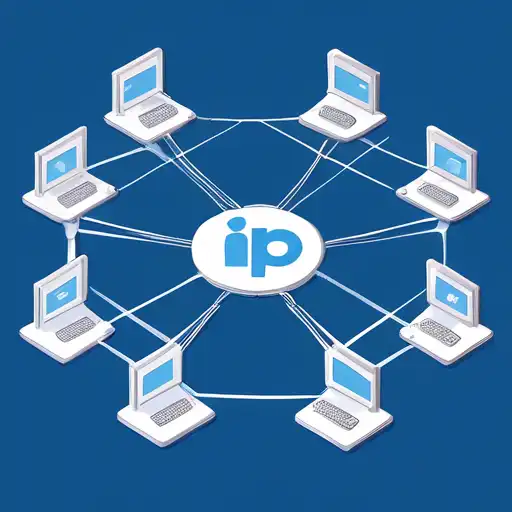Introduction to IP Addresses
In the digital world, an IP (Internet Protocol) address is akin to a home address for your computer or device on the internet. It's a unique identifier that allows devices to communicate with each other over a network. Understanding IP addresses is fundamental for anyone looking to grasp the basics of networking.
What is an IP Address?
An IP address is a numerical label assigned to each device connected to a computer network that uses the Internet Protocol for communication. It serves two main functions: identifying the host or network interface and providing the location of the host in the network.
Types of IP Addresses
There are two versions of IP addresses in use today: IPv4 and IPv6. IPv4 addresses are 32-bit numbers, typically displayed in decimal format as four octets separated by periods (e.g., 192.168.1.1). Due to the exponential growth of the internet, IPv6 was introduced, which uses 128-bit addresses, allowing for a vastly larger number of unique addresses.
How IP Addresses Work
When you type a website's name into your browser, a Domain Name System (DNS) server translates the name into an IP address that your computer can understand. This process is crucial for the functioning of the internet, as it allows users to access websites without memorizing complex numerical addresses.
Static vs. Dynamic IP Addresses
IP addresses can be static or dynamic. A static IP address remains constant, making it ideal for hosting websites or services. On the other hand, a dynamic IP address is assigned by a DHCP server and can change over time, which is common for residential internet connections.
Why Understanding IP Addresses is Important
Knowing how IP addresses work is essential for troubleshooting network issues, setting up a home network, or pursuing a career in IT. It's the foundation upon which the internet is built, enabling devices to find and communicate with each other.
Securing Your IP Address
While IP addresses are necessary for internet communication, they can also be exploited by malicious actors. Using a VPN (Virtual Private Network) can help protect your IP address from being exposed, enhancing your online privacy and security.
Conclusion
IP addresses are the cornerstone of internet communication, enabling devices to connect and share information across the globe. Whether you're a budding IT professional or just curious about how the internet works, understanding IP addresses is a crucial step in your networking journey.
For more insights into networking basics, check out our guide on Networking Fundamentals.
